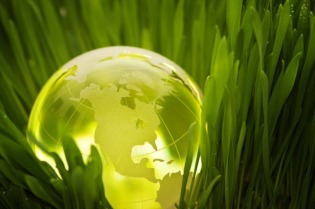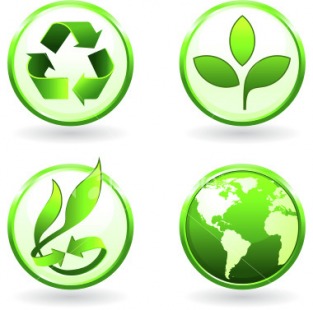Call for your FREE Estimate Today
(205) 454-9371
What is Sustainability?

By definition, sustainability concerns the specification of a set of actions to be taken by present persons that will not diminish the prospects of future persons to enjoy levels of consumption, wealth, utility, or welfare comparable to those enjoyed by present persons. Sustainability grows out of a need for intertemporal ethical rules when one generation can determine the endowment of natural and constructed capital that will be passed on to all subsequent generations. Economic models of sustainability seek axiomatic guidance for the selection of rules regarding natural resource use. Ecologists approach sustainability from a related – though not identical – ethical stance (Daniel W. Bromley; The New Palgrave Dictionary of Economics, Second Edition, 2008).
More simply, "sustainability is improving the quality of human life while living within the carrying capacity of supporting eco-systems" (Gland, Switzerland, October 1991).
More simply, "sustainability is improving the quality of human life while living within the carrying capacity of supporting eco-systems" (Gland, Switzerland, October 1991).
Why Should We Care?

There is abundant scientific evidence that humanity is living unsustainably, and returning human use of natural resources to within sustainable limits will require a major collective effort. Ways of living more sustainably can take many forms from reorganizing living conditions (e.g., eco-villages, eco-municipalities and sustainable cities), reappraising economic sectors (permaculture, green building, sustainable agriculture), or work practices (sustainable architecture), using science to develop new technologies (green technologies, renewable energy), to adjustments in individual lifestyles that conserve natural resources.
The overall driver of human impact on Earth systems is the destruction of biophysical resources, and especially, the Earth's ecosystems. The total environmental impact of a community or of humankind as a whole depends both on population and impact per person, which in turn depends in complex ways on what resources are being used, whether or not those resources are renewable, and the scale of the human activity relative to the carrying capacity of the ecosystems involved.
Historically, humanity has responded to a demand for more resources by trying to increase supply. As supplies inevitably become depleted sustainable practices are encouraged through demand management for all goods and services — by promoting reduced consumption, using renewable resources where possible, and encouraging practices that minimize resource intensity while maximizing resource productivity. Careful resource management can be applied at many scales, from economic sectors like agriculture, manufacturing and industry, to work organizations, the consumption patterns of households and individuals and to the resource demands of individual goods and services.
The overall driver of human impact on Earth systems is the destruction of biophysical resources, and especially, the Earth's ecosystems. The total environmental impact of a community or of humankind as a whole depends both on population and impact per person, which in turn depends in complex ways on what resources are being used, whether or not those resources are renewable, and the scale of the human activity relative to the carrying capacity of the ecosystems involved.
Historically, humanity has responded to a demand for more resources by trying to increase supply. As supplies inevitably become depleted sustainable practices are encouraged through demand management for all goods and services — by promoting reduced consumption, using renewable resources where possible, and encouraging practices that minimize resource intensity while maximizing resource productivity. Careful resource management can be applied at many scales, from economic sectors like agriculture, manufacturing and industry, to work organizations, the consumption patterns of households and individuals and to the resource demands of individual goods and services.